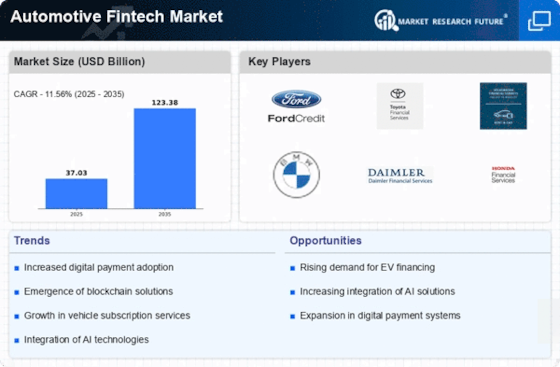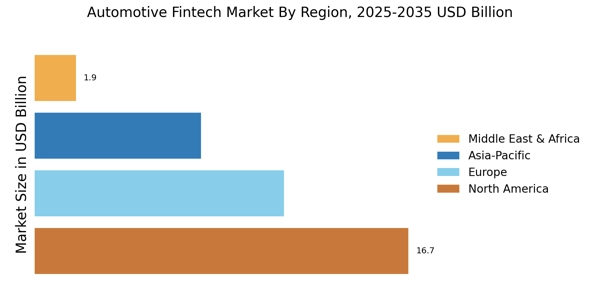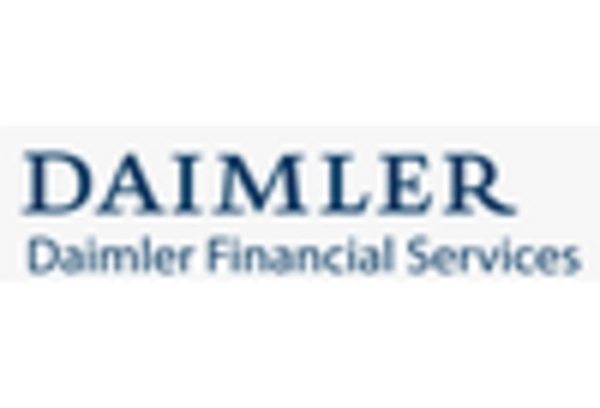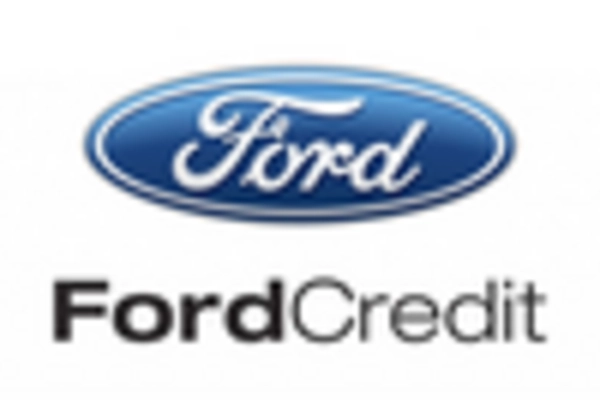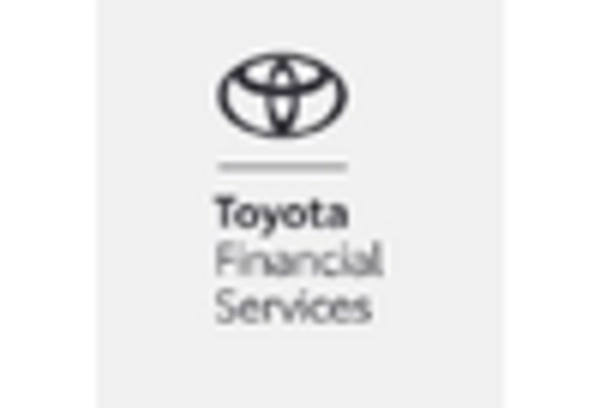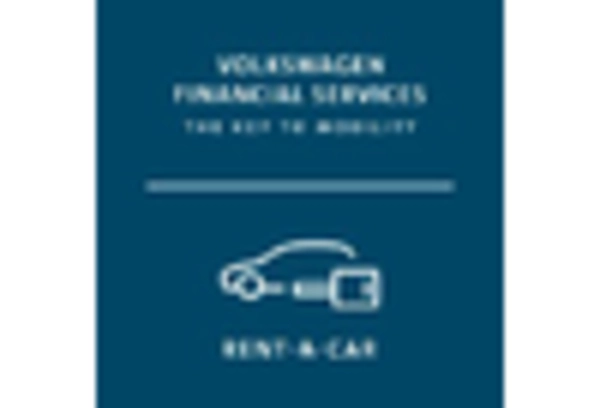Increased Adoption of Electric Vehicles
The Automotive Fintech Market is experiencing a notable shift towards electric vehicles (EVs), driven by consumer demand for sustainable transportation solutions. As governments implement stricter emissions regulations and provide incentives for EV purchases, the market for automotive fintech solutions tailored to EV financing is expanding. In 2025, it is estimated that EV sales could account for over 30% of total vehicle sales, necessitating innovative financing options that cater to this growing segment. Automotive fintech companies are likely to develop specialized loan products and leasing options that address the unique needs of EV buyers, thereby enhancing their market presence. This trend not only supports the transition to greener technologies but also presents significant opportunities for fintech firms to capture a share of the evolving automotive landscape.
Rise of Subscription-Based Ownership Models
The Automotive Fintech Market is witnessing a rise in subscription-based ownership models, which offer consumers flexibility and convenience. This trend is particularly appealing to younger demographics who prioritize access over ownership. Subscription services allow users to pay a monthly fee for vehicle access, which includes insurance and maintenance, thereby simplifying the ownership experience. In 2025, it is anticipated that subscription services could capture a significant portion of the automotive market, potentially reaching 10% of total vehicle sales. Automotive fintech companies are likely to develop financial products that support these subscription models, creating new revenue streams and enhancing customer engagement. This shift towards subscription-based models reflects changing consumer preferences and presents a unique opportunity for fintech firms to innovate within the automotive sector.
Integration of Advanced Analytics in Financing
The Automotive Fintech Market is increasingly integrating advanced analytics into financing solutions, enabling more informed decision-making for both consumers and lenders. By utilizing big data, automotive fintech companies can assess creditworthiness more accurately and offer competitive interest rates tailored to individual profiles. In 2025, it is expected that the use of predictive analytics in automotive financing will grow significantly, with a potential increase in loan approval rates by up to 20%. This data-driven approach not only enhances the efficiency of the financing process but also reduces risks for lenders, fostering a more robust automotive fintech ecosystem. As analytics continue to evolve, they are likely to play a crucial role in shaping the future of automotive financing.
Enhanced Consumer Experience through Technology
The Automotive Fintech Market is increasingly focused on enhancing consumer experiences through advanced technology. The integration of artificial intelligence and machine learning into automotive financing processes allows for personalized loan offerings and streamlined application procedures. In 2025, it is projected that over 60% of consumers will prefer digital channels for financing their vehicles, indicating a shift in consumer behavior. Fintech companies are likely to leverage data analytics to provide tailored financial solutions, improving customer satisfaction and retention. This technological evolution not only simplifies the financing process but also fosters a more engaging and efficient interaction between consumers and automotive fintech providers, ultimately driving market growth.
Collaboration with Traditional Financial Institutions
The Automotive Fintech Market is seeing a trend of collaboration between fintech companies and traditional financial institutions. This partnership allows fintech firms to leverage the established trust and resources of banks while offering innovative solutions that enhance customer experience. In 2025, it is projected that partnerships between fintech and banks could lead to a 15% increase in the availability of automotive financing options. Such collaborations enable the development of hybrid products that combine the agility of fintech with the stability of traditional banking. This synergy not only broadens the reach of automotive fintech solutions but also fosters a competitive landscape that benefits consumers through improved financing options and services.


